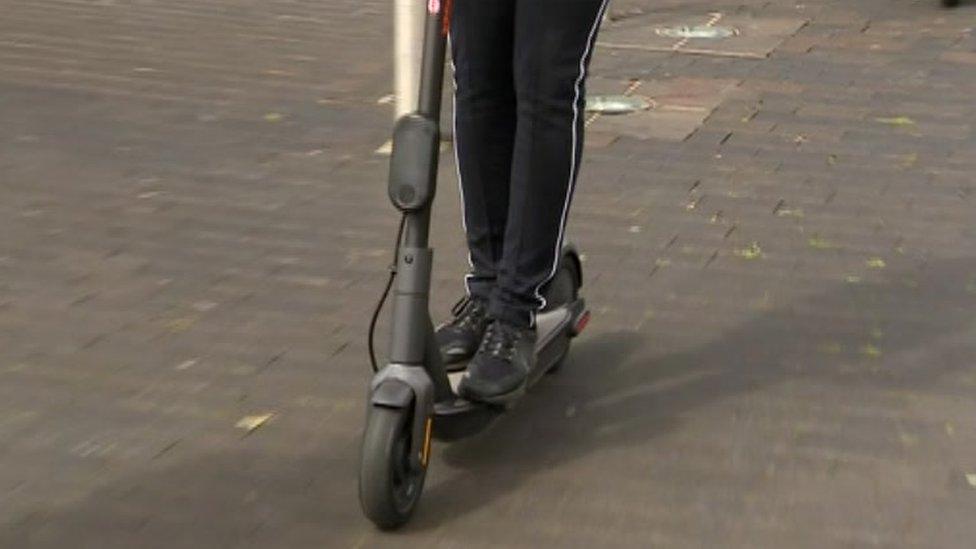Private e-scooters: What should happen next?
- Published
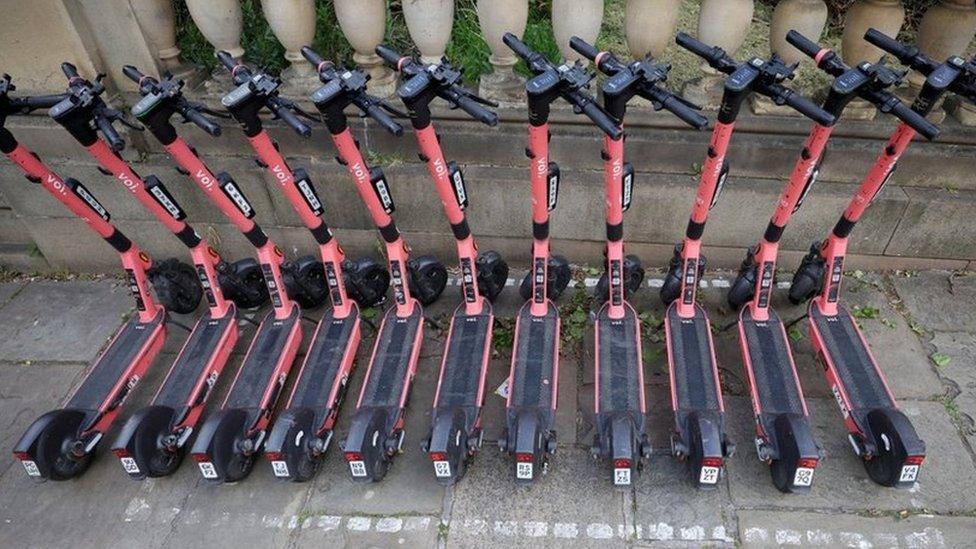
There are e-scooter pilot schemes across the country including one in Liverpool
Proper regulation and enforcement of rules is vital if private e-scooters are to be made legal, say communities where the vehicles have been piloted.
The government announced a Transport Bill in the Queen's Speech that is expected to legalise their use.
Rented e-scooters have been tested out in 57 towns and cities in the UK.
BBC Politics East has talked to people in Great Yarmouth and Basildon to get their views.
The first pilot schemes were announced in June 2020 by then Transport Minister Rachel Maclean.
She said the trials would test whether e-scooters offered "clean and cost-effective travel that may also help ease the burden on the transport network, provide another green alternative to get around and allow for social distancing".
Trials have been taking place in towns and cities around the country, including Basildon, Bristol, Cambridge, Liverpool, Great Yarmouth, Liverpool, Middlesbrough, Milton Keynes, Northampton and Norwich.
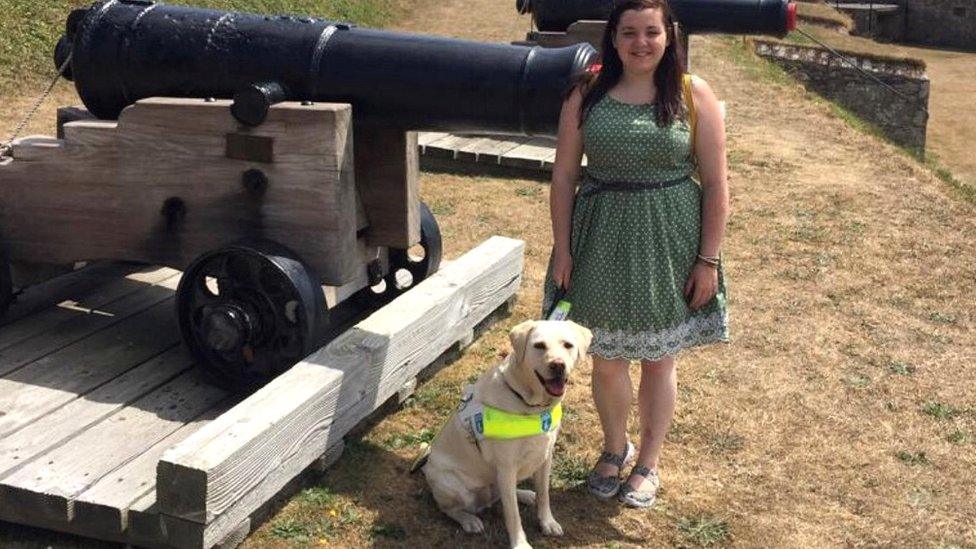
Samantha Leftwich feels safer going out with her guide dog Liz, rather than just with her cane, after nearly being hit by an e-scooter
Now the government is looking at legalising the 750,000 private e-scooters which are estimated to be in the country, external - and which at present cannot be legally used on public roads or pavements.
Many concerns have been raised about e-scooters, particularly by the blind and visually impaired, with charities Guide Dogs and the National Federation of the Blind UK highlighting cases of misuse.
Samantha Leftwich, from Basildon, Essex, who is visually impaired, was nearly run over by a e-scooter who hit her white cane.
'Need to be safe'
"Since then I haven't really been out with my cane because it was quite scary," she said.
"I don't think they should be banned because I understand their eco-friendliness, but they need to be safe and enforcement of regulations must be clear as well.
"Riding on pavements is illegal but people are doing it a lot."
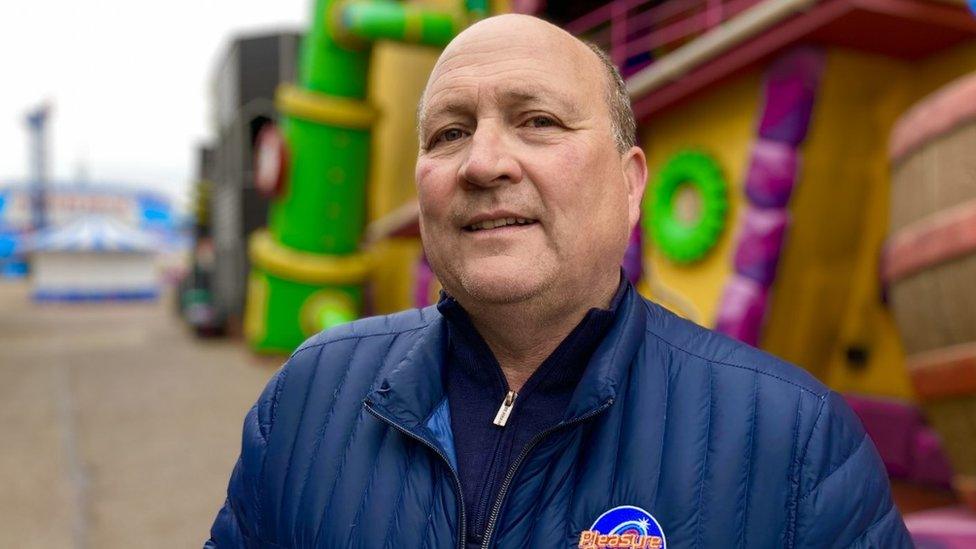
Albert Jones said he had seen private e-scooters being used illegally
Albert Jones, the owner of the Pleasure Beach in Great Yarmouth, said: "I am all for the green footprint and trying to help people but it needs to be policed correctly.
"And we need to have the rules in place and we need to confiscate vehicles it people are not going to abide by the rules."
Trevor Wainwright, leader of the Labour group on Great Yarmouth Borough Council (GYBC), said: "Clearly, the police are stretched every which way. It will be something they have to deal with.
"I certainly know in Yarmouth the police are very pro-active in stopping the private ones when they can and confiscating and then destroying them.
"Regulation is the way forward and I just hope that the government just get on with it."
Paul Hodgins, chief executive officer of Ginger, which runs the e-scooter trial in Great Yarmouth, told the BBC: "The most serious accidents are caused by the big vehicles and the fact we have too much space taken up by large vehicles.
"The more people we can get on to smaller vehicles with lower speeds, the safer the environment.
"It's new so people are getting used to it, like people learning to ride bike for the first time."
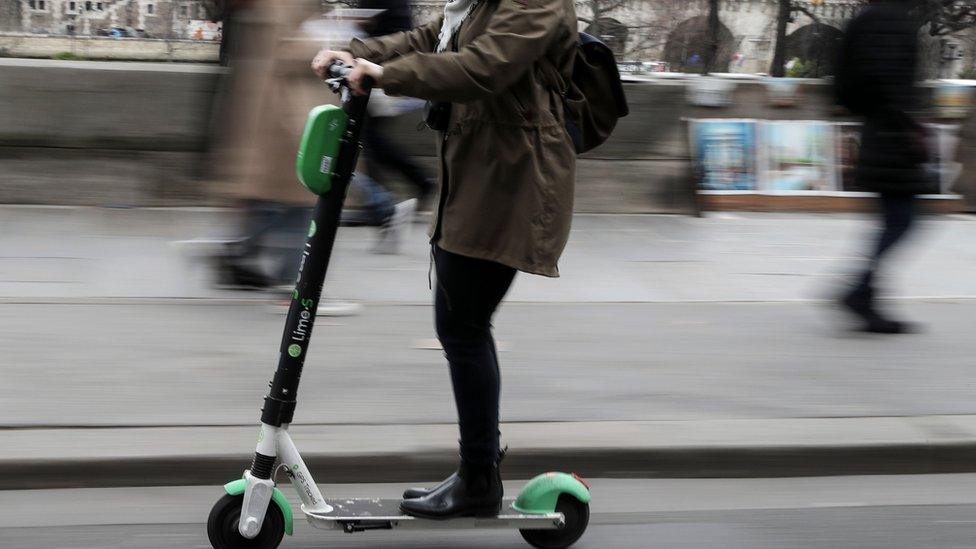
Electric scooters for hire have already become a familiar sight in European and US cities
A GYBC spokesman said: "Since the e-scooter trial was launched in Great Yarmouth [in March 2021], nearly 13,000 people have signed up to use the e-scooters, with riders making up to 8,000 journeys a month.
"We have worked with Ginger, the scheme operator, to build in safety features including speed limits and automatic cut-offs in pedestrian areas."
A government spokeswoman said: "Safety will always be our top priority and our trials are helping us to better understand the benefits of properly regulated, safety-tested e-scooters and their impact on public space.
"While riding a privately owned e-scooter on public land is currently illegal, we are considering how best to design future regulations and our Transport Bill will help us to take the steps we need to make e-scooters safer and support innovation."
Politics East airs on BBC One in the East on Sunday 15 May at 10:00 GMT and can be viewed on the BBC iPlayer afterwards.

Find BBC News: East of England on Facebook, external, Instagram, external and Twitter, external. If you have a story suggestion email eastofenglandnews@bbc.co.uk, external
- Published7 March 2022
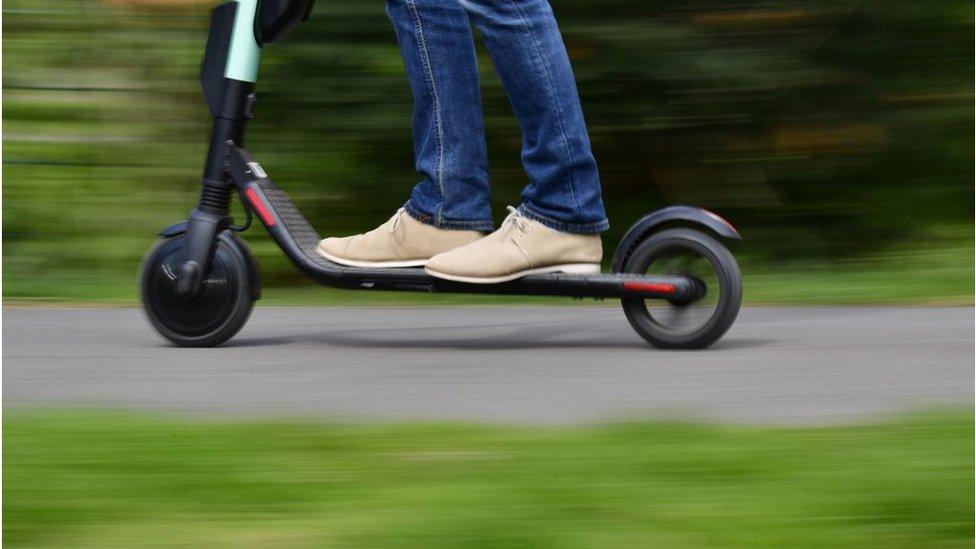
- Published7 April 2021
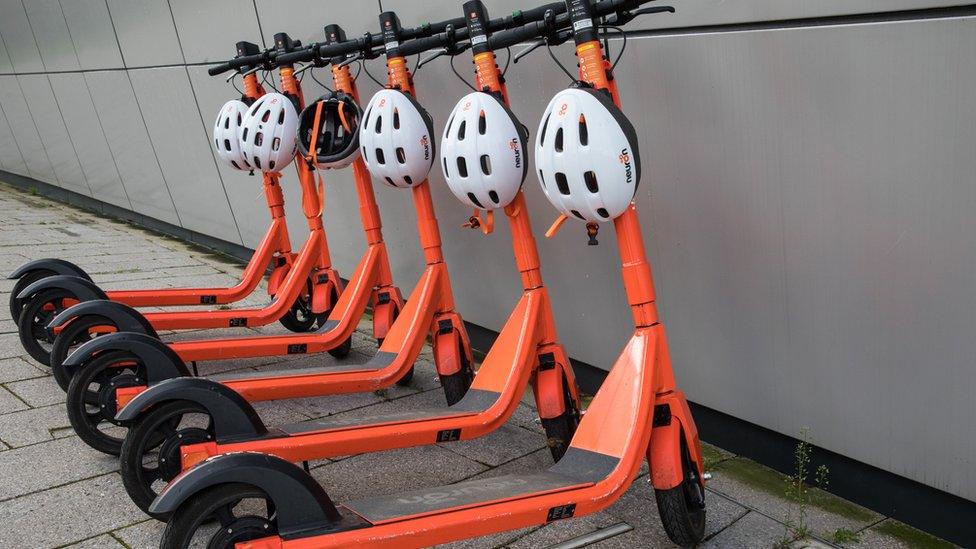
- Published4 August 2020
